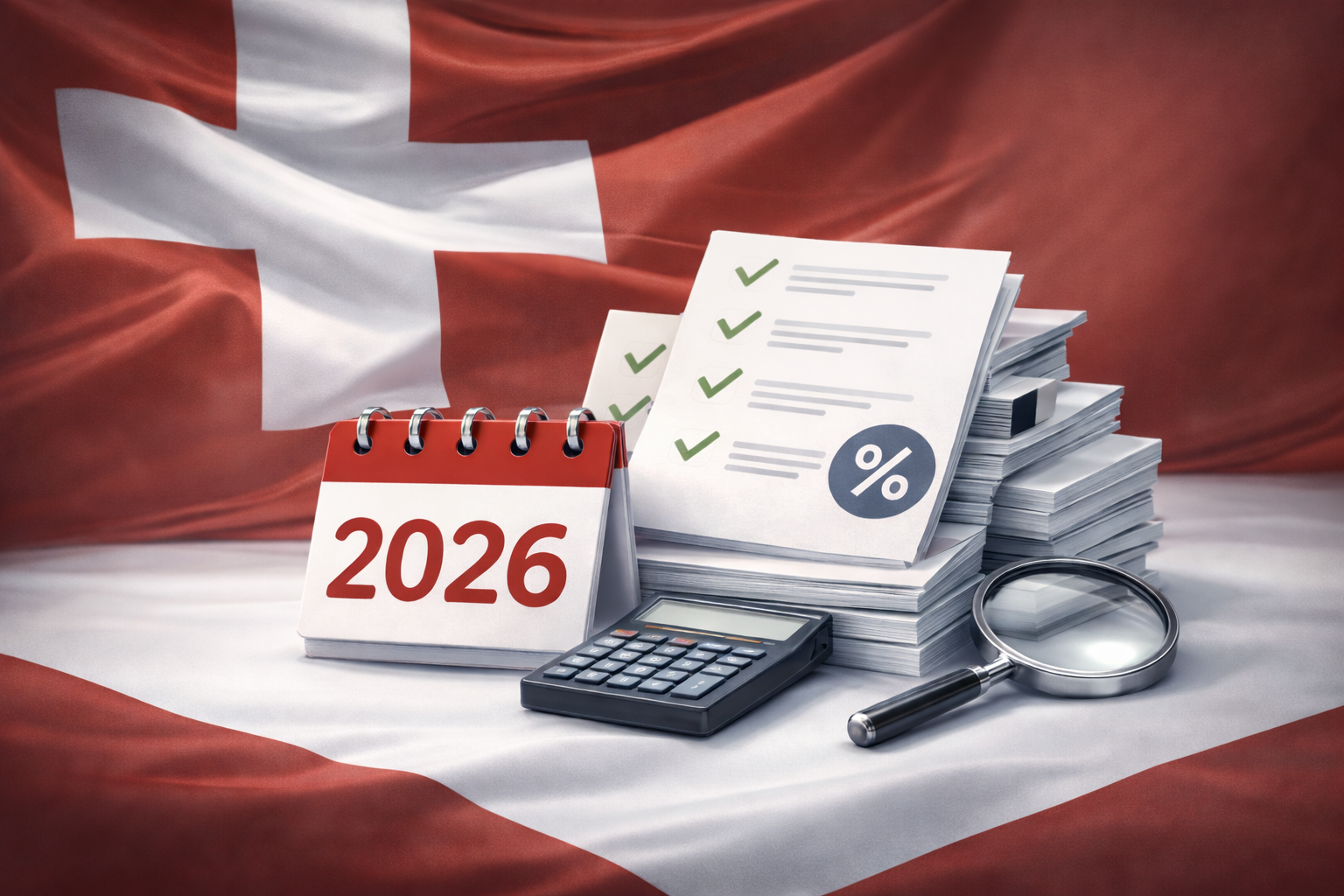Opportunities and tips for online retailers
Black Friday in e-commerce: How to make customers in Switzerland and the UK happy despite the peak
How online retailers can prepare for Black Friday in e-commerce and ensure an optimal customer journey for sales to Switzerland and the UK

How online retailers can prepare for Black Friday in e-commerce and ensure an optimal customer journey for sales to Switzerland and the UK
Black Friday is just around the corner and will once again be taking place mainly online this year. For many sectors, Black Friday is now the day with the highest turnover of the year. The annual shopping event has long been established outside the USA, including in Switzerland and the UK. For online retailers, Black Friday not only means lots of website traffic and high revenues, but also the great challenge of processing all orders smoothly.
In this article, we have summarized how online retailers prepare best for Black Friday in e-commerce and ensure an optimal customer journey, especially for cross-border sales - including specific tips for cross-border business to the UK and Switzerland. We reveal what online retailers need to consider if they want to sell to these countries and manage cross-border orders with consistent quality, even during peak times such as Black Friday.
What is Black Friday? Definition
Black Friday traditionally takes place on the fourth (and last) Friday in November - directly after Thanksgiving in the USA, where the day was originally launched in the 1960s for “brick and mortar” retail. Black Friday 2023 is on November 24.
The day has great impact for retailers in more and more countries. It marks the start of the Christmas season and contributes significantly to end-of-year sales.
Customers are increasingly searching for deals online. Some retailers now even run an entire Black Week or Cyber Week, as well as additional promotional days in November such as Prime Day, Cyber Monday or Singles Day. The most popular items purchased are clothing, electronics, shoes, cosmetics and household devices.
Sales potential during Cyber Week
Black Friday is one of the most important days for most e-commerce retailers. Worldwide sales on Black Friday 2022 reached 8.9 billion dollars. In 2023, there is also a good chance that record-breaking sales will be achieved in e-commerce during Black Week - especially in Switzerland and the UK.
In Switzerland
In general, the Swiss e-commerce market is growing much faster than in Germany or Austria. In addition, purchasing power in Switzerland is three times higher than the European average, according to GfK (Germany's largest market research institute). According to Statista and Blackfridaydeals.ch, online sales on Black Friday in Switzerland reached around 115 million Swiss francs in 2021. In 2022, sales were at a similarly high level of around 110 million Swiss francs. The average shopping basket value on Black Friday in online stores in Switzerland was around 225 francs in 2021.
According to Blackfriday.ch, the average budget that Swiss consumers set themselves for their purchases on Black Friday was 289 Swiss francs per capita in 2022. This shows an exciting trend among shoppers when it comes to spending on Black Friday: they make fewer impulse purchases and shop more sustainably and thoughtfully. At the same time, they have a strong intention to buy: almost 70% of Swiss consumers confirmed to Blackfriday.ch that they were planning to take action during the Black Friday sales campaigns in 2022. Specific forecasts for Cyber Week in Switzerland in 2023 are not yet available, but this trend is expected to continue.
In UK
The first forecasts for Black Friday in the UK in 2023 have been published: Brits will spend an estimated £3 billion on Black Friday and Cyber Monday this year. The average amount expected to be spent per person in 2023 is slightly lower than in the previous year. This is likely to be partly due to crises, the rising cost of living and high inflation. At the same time, however, more people (just over half of Britons) are expected to make one or more purchases during Cyber Week UK. Overall, the British are among the world's biggest online shoppers, spending EUR 3,315 per person per year on online purchases.
Preparing for Black Friday in e-commerce: Checklist for cross-border business
Those who decide to take part in the Black Friday discount campaigns with their online business should be well prepared. This is especially important if you want to generate sales across EU borders on Black Friday and benefit from the high purchasing power in e-commerce in Switzerland and the UK.
Below we have put together some tips on how to prepare for Black Friday with a focus on cross-border sales. This will enable online retailers to handle the increase in sales to countries outside the EU without having to scale up their own operations.
By the way: You can read more about what online retailers should generally consider when shipping to Switzerland and what Brexit means for e-commerce in our blog.
#1 Optimize product range
Decide early on which products you want to promote on Black Friday - for example with an ABC analysis of the product range (A are the best sellers, C the slow sellers). Analyze the needs of your customers and get a clear idea of your target group, for example with test groups or based on sales figures from previous months.
Then define the discounts properly and use the opportunity to get rid of slow sellers and old stock. Order in line with sales and avoid shortages as well as surplus inventory.
#2 Determine pricing strategy
Next, you should think about which offers you would like to use to attract customers. Communicate these in good time and take into account local preferences and trends in the markets you want to sell to. What works for the German market is not automatically suitable for the United Kingdom. In general, however, a mix of super deals, bundles, time-limited offers, gamification, etc. is usually beneficial.
#3 Start advertising and test systems
As soon as prices and products have been determined, you should prepare the content for your marketing campaigns and run it on various channels (email, social media, etc.). Only if your potential customers know about your offers they can make a purchase on your website on Black Friday. The same rule applies here: know your markets and target groups and create customized campaigns.
Also make sure that your website can keep up with the rush on Black Friday. Nothing is more annoying on such an important sales day than technical problems.
#4 Optimize shipping and ensure fulfillment
This is probably the most important point when preparing for Black Friday in e-commerce. Customers expect fast deliveries and low shipping costs without unexpected additional payments on delivery - even when shopping across EU borders. In order to meet these high expectations, online retailers must be prepared for a sudden increase in orders during peak times such as Cyberweek. They should be able to handle the increase in orders with the usual shipping quality and within the promised delivery times. The processing should not take longer than on a usual day.
Traditionally, as a retailer, you have to scale up your operations and capacities significantly and plan in additional staff for packaging and shipping, for example, as well as informing external partners about increased order volumes in advance in order to manage this. You need to plan sufficient buffers, alternatives and additional resources for unexpected situations - internally (financially and in terms of personnel) and externally with partners such as agencies, suppliers or logistics. On top of this, more orders in cross-border shipping also mean more customs declarations and returns that need to be processed (more on returns in tip #5). These processes - in addition to the already busy operations - are linked to additional costs and increased personnel requirements.
Online retailers can save the extra effort by working with exporto as a partner. The end-to-end solution from exporto streamlines the entire logistics process. As a retailer, you receive all the services you need to process your cross-border business quickly from a single source - even at peak times. From the pick-up of parcels to customs clearance, delivery by local carriers to the end customer in the destination country and efficient returns management. This makes shipping much faster and smoother. With delivery times of just two to three working days, your customers will not notice any difference to the orders they placed in their domestic market. You stick to your usual processes and exporto takes care of fast and reliable delivery abroad, without having to communicate peaks (such as Black Friday) in advance.
This simplifies the cross-border day-to-day business enormously - by working with just one service provider, the communication effort is low and delays in the supply chain are avoided. Overall, the shopping experience feels "local" for customers and online retailers feel no operational difference between cross-border business and shipping in their domestic market.

Image: Canva
#5 Don't forget returns
Last but not least: after the peak season is before the peak season. Returns usually increase after Black Friday because the tight ordering time frame encourages purchases - often without shoppers knowing for sure whether they really need an item or are ordering the right version. Therefore, make sure in advance that the returns process can be handled quickly and easily.
Customers have high expectations regarding this too. According to a Statista survey, about half of respondents in Germany would avoid an online purchase or look for another online store if returns were charged. Customers expect a simple returns process for cross-border orders as well - for example with a returns slip directly in the parcel and returns to the local carrier.
Online retailers should therefore
- be prepared for a large number of returns and
- enable an efficient and uncomplicated returns process for all customers.
exporto provides a solution here as well: Returns from abroad are received and processed locally in our own returns centers in the respective countries. The parcels are back in your warehouse after just three to a maximum of five days. This allows you to flexibly manage your SLAs and always maintain a constant overview of all returns in the system.
Conclusion: How to succeed in cross-border business on Black Friday
Overall, the following applies: with the right preparation, e-commerce retailers can benefit from international sales potential on Black Friday without having to increase their own operations for cross-border processing. It is essential that they set up an efficient shipping and returns process in advance and, above all, prepare for the additional effort involved in shipping to countries outside the EU.
exporto helps with automated technologies and optimized logistics networks. This enables e-commerce retailers to process customs and tax issues efficiently, select the desired carrier in the destination country, manage returns efficiently and keep a transparent overview throughout the entire supply chain.
Considering this you are well prepared for the next Black Friday in e-commerce and can be sure that your sales to the UK and Switzerland will be handled just as easily as sales in your domestic market. Sounds good? Simply get in touch with us using our contact form.
About the Author

Katharina Knoop
As Senior Marketing Manager for exporto GmbH, Katharina Knoop is coordinating the planning, production and publication of content relating to all aspects of cross-border e-commerce for over 4 years.
Cross-border insights straight to your inbox
Related Posts
Market information and tips on taxes, payments and returns management for shippi...
9 minute read
Opportunities and strategies for German online retailers
3 minute read
This allows British online retailers to tap into the German e-commerce market wi...




Comments